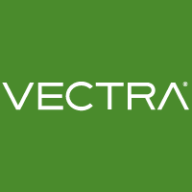

Fortinet FortiGate and Vectra AI are both prominent in the cybersecurity industry, serving different aspects; FortiGate excels in network security while Vectra AI leads in AI-driven threat detection. Fortinet FortiGate stands out due to its comprehensive network security features, making it a superior choice for enterprises needing extensive coverage and control.
Features: Fortinet FortiGate offers integrated security architecture with valuable functionalities such as robust firewalls, SSL VPN, and high availability clustering. It provides advanced firewall rule options, allowing minimal disruptions and reliable network security. On the other hand, Vectra AI specializes in real-time threat detection utilizing AI algorithms to deliver insights into potential security risks. This capability allows it to identify and manage threats efficiently, focusing on behavior analysis.
Room for Improvement: Fortinet FortiGate could enhance its reporting and analytics to provide deeper insights into security events and impacts. Expanding scalable options with more intuitive user interfaces for broader market needs can also add value. While Vectra AI's AI capabilities are superior, introducing easier deployment solutions and reducing complexity in setup processes might benefit some users. Enhanced integration features for seamless operation alongside other security tools could also provide a substantial improvement for Vectra AI.
Ease of Deployment and Customer Service: Fortinet FortiGate is simpler to deploy with comprehensive documentation and support available, ideal for enterprises looking to implement quickly. Its user-friendly interface allows for easier management. Vectra AI requires a more complex setup given its sophisticated AI elements; however, their customer support effectively aids in deployment challenges, ensuring systems are operational efficiently. Those seeking straightforward solutions may lean towards Fortinet, whereas those looking to leverage AI would appreciate Vectra's supportive setup process.
Pricing and ROI: Fortinet FortiGate usually offers a cost-effective approach, appealing to budget-conscious enterprises while still providing powerful network security solutions. It offers a high return on investment by safeguarding wide network perimeters. Vectra AI, with its higher initial cost, delivers substantial returns through in-depth threat detection, reducing long-term security risks and saving costs on threat management. Companies more focused on an immediate budget might prefer Fortinet FortiGate, whereas those seeking a strong AI-led method to lower potential future threats might consider Vectra AI invaluable.
Clients are now comfortable and not wasting productive hours on IT support.
The automation part is giving us a cost benefit and speed; we can react faster.
It's a very useful tool to mitigate and protect your enterprise.
They offer very accurate solutions.
The quick resolution of issues with Fortinet FortiGate is due to the support of the company and the fact that the equipment is easy to work with.
I would rate the technical support for Fortinet FortiGate a ten out of ten.
The support is quite reliable depending on the service engineer assigned.
When I create tickets, the response is fast, and issues are solved promptly.
They scale up really well from smaller models like the FortiGate 40 and 50 to bigger sites with the FortiGate 100 for more throughput - up to enterprise datacenters.
The variation comes in terms of the interfaces and throughputs, but from a security perspective, you get the same benefit, irrespective of whether you have an entry-level unit or an enterprise.
We determine sizing based on multiple factors: number of users, available links, traffic types, server count, services in use, and whether services will be published.
We're experiencing 99.999% availability consistently.
I would rate the stability of Fortinet FortiGate a ten out of ten.
Currently, we are experiencing a general outage of one of the main internet service providers of the Dominican Republic, and we have not been impacted in our operations because with SD-WAN, we have another internet service provider and we are working with the second WAN connection without any disruption.
Investing in a solution that can accommodate such growth would be more cost-effective than repeatedly purchasing new hardware.
While Fortinet claims to offer a comprehensive network solution, it falls short in addressing computer application issues, particularly server security.
When considering Sophos XG, which we also use, the logging and reporting functionality is notably more efficient.
ExtraHop's ability to decrypt encrypted data is a feature that Vectra AI lacks.
You need to have a Linux server, and from the Linux server, you must perform AI tasks, and there is a lot to be handled in the back end.
Neither Vectra nor Darktrace have a function like a status health check on my log sources and traffic sources.
Last year, I renewed the support for three years, which can sometimes be expensive but depends on the security benefits and how it helps us.
It offers cost savings as it is generally cheaper than the competition.
It is about 20% cheaper.
Vectra is cheaper in terms of pricing and features compared to Darktrace.
It is very acceptable when you compare it with Darktrace, for example.
In terms of security, we have not experienced any security flaws or loopholes, and it has proven to be quite stable.
FortiGate has helped reduce the risk of cyberattacks that might disrupt our client's production.
These features help reduce our downtime, manage the ISPs, and deploy SLAs for all the website traffic.
There are extensive out-of-box detection capabilities.
The main feature of Vectra AI that I find valuable is its focus on the user interface and its approximately two hundred algorithms based on artificial intelligence and machine learning.
| Product | Market Share (%) |
|---|---|
| Fortinet FortiGate | 16.4% |
| Vectra AI | 7.9% |
| Other | 75.7% |


| Company Size | Count |
|---|---|
| Small Business | 350 |
| Midsize Enterprise | 130 |
| Large Enterprise | 187 |
| Company Size | Count |
|---|---|
| Small Business | 9 |
| Midsize Enterprise | 10 |
| Large Enterprise | 27 |
Fortinet FortiGate excels in providing integrated VPN, firewalling, and Unified Threat Management (UTM) with centralized management and high availability. It supports remote access and comprehensive threat protection, making it a preferred choice for securing networks.
Fortinet FortiGate offers a robust security platform with features such as strong intrusion prevention, application control, and web filtering. Its integration with Active Directory and SD-WAN functionality provides scalable solutions for large networks. Users appreciate its ease of use through centralized management interfaces, ensuring robust security with flexible configurations. However, FortiGate could enhance its graphical interface and technical support responsiveness, address firmware bugs and costly licensing, improve logging, integrate better with third-party tools, and strengthen scalability and memory for log storage. Complexity in configuration and the need for intuitive features are noted challenges, and there's a demand for advanced security, zero-trust capabilities, and AI integration.
What are the key features of Fortinet FortiGate?Fortinet FortiGate is widely implemented across industries like education, finance, and government. Companies use it for firewall protection, VPN, and SD-WAN capabilities, ensuring secure perimeter and data center security. It facilitates remote access management and traffic routing optimization, offering reliable security and connectivity solutions.
Vectra AI enhances security operations by pinpointing attack locations, correlating alerts, and providing in-depth visibility across attack lifecycles, ultimately prioritizing threats and improving incident responses.
Vectra AI integrates AI and machine learning to detect anomalies early and supports proactive threat response. Its features like risk scoring, alert correlation, and streamlined SOC efficiency are supplemented by integration with tools like Office 365. Users highlight integration, reporting, and customization challenges, alongside limitations in syslog data and false positive management. They seek enhancements in visualization, UI, TCP replay, endpoint visibility, and tool orchestration, with requests for improved documentation, licensing, and cloud processing innovation.
What are the key features of Vectra AI?In industries like finance, healthcare, and critical infrastructure, Vectra AI is crucial for threat detection and network monitoring. Entities use it for identifying anomalous behaviors and enhancing cybersecurity by responding to network activities and analyzing traffic for potential breaches. It operates on-premises and in hybrid cloud settings, enabling threat detection without endpoint agents and supporting compliance and policy enforcement.
We monitor all Intrusion Detection and Prevention Software (IDPS) reviews to prevent fraudulent reviews and keep review quality high. We do not post reviews by company employees or direct competitors. We validate each review for authenticity via cross-reference with LinkedIn, and personal follow-up with the reviewer when necessary.